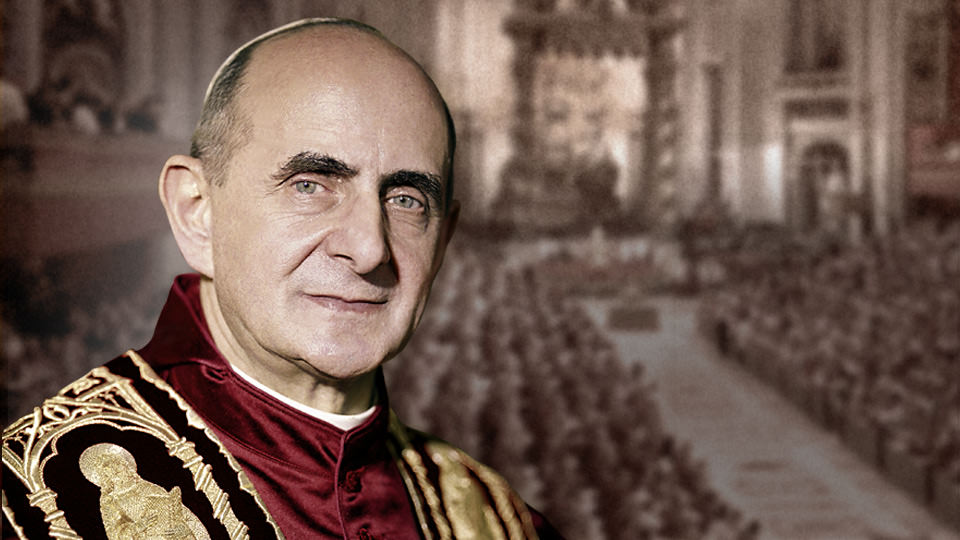NOSTRA AETATE FOR TODAY
NOSTRA
AETATE FOR TODAY
Pope St. Paul VI promulgated a
“Declaration on the Relation of the Church to non-Christian Religions” on
October 28, 1965, the shortest of the sixteen documents of the Second Vatican
Council. He explains the reason for its
promulgation: “In our time [nostra aetate] when day by day mankind is being drawn closer together, and
the ties between different peoples are becoming stronger, the Church examines
more closely her relationship to non-Christian religions. In her task of
promoting unity and love among men, indeed among nations, she considers above
all in this declaration what men have in common and what draws them to
fellowship.”
Nostra
aetate first briefly speaks of the relation
of the Church to Hinduism and Buddhism, highlighting what she considers to be positive
elements in their beliefs and practices.
It affirms that “The Catholic Church rejects nothing that is true and
holy in these religions. She regards with sincere reverence those ways of
conduct and of life, those precepts and teachings which, though differing in
many aspects from the ones she holds and sets forth, nonetheless often reflect
a ray of that Truth which enlightens all men.”
Nostra
aetate notes that there is some
correspondence between Christianity and Islam on the subject of God and of
morality. Moslems “adore the one God,
living and subsisting in Himself; merciful and all- powerful, the Creator of
heaven and earth, who has spoken to men.”
Muslims link themselves with the Patriarch Abraham, and revere Christ,
not as the Son of God but as a prophet. They
also honor Mary, His virgin Mother. Like
Christians, Muslims await the day of judgment when God will “render their
deserts” to all who have been raised from the dead. Moslems and Christians engage in praying, almsgiving
and fasting. Nostra aetate
counsels all sides to “forget the past” – that is, wars fought over the
centuries between Christians and Moslems – “and to work sincerely for mutual
understanding” and for “social justice and moral welfare, as well as [for] peace
and freedom.”
The greater
focus of Nostra aetate is naturally on the Church’s relation to
Judaism. It celebrates “the bond that
spiritually ties the people of the New Covenant to Abraham’s stock.” The Church continues to believe what the
Apostle Paul taught about his kinsmen: “Theirs is the sonship and the glory and
the covenants and the law and the worship and the promises; theirs are the
fathers and from them is the Christ according to the flesh” (Rom. 9:4-5). The apostles, the pillars of the Church, were
Jewish, and so were the first men to bring the gospel to the Gentiles. What Christians profess today has its
foundation in the Patriarchs Abraham, Isaac, and Jacob, and Moses, and the prophets.
The Church “professes that all who believe in Christ – Abraham's sons [and
daughters] according to faith – are included in the same Patriarch's call, and
likewise that the salvation of the Church is mysteriously foreshadowed by the Chosen
People's exodus from the land of bondage. The Church, therefore, cannot forget
that she received the revelation of the Old Testament through the people with
whom God in His inexpressible mercy concluded the Ancient Covenant.”
The
Church believes that the call and election of the Jews remains valid, even
though Jerusalem did not recognize the time of her visitation and most Jews did
not accept the gospel. For the sake of
the patriarchs God continues to hold the Jews dear to His heart. “He does not repent of the gifts He makes or
of the calls He issues...The Church awaits that day, known to God alone, on
which all peoples will address the Lord in a single voice and ‘serve him
shoulder to shoulder’ (Zephaniah 3:9).” God
has a special love for the Jews, and we are obligated to remember this when
Jews are hated because of their race and origin. “The Church, mindful of the patrimony she
shares with the Jews and moved not by political reasons but by the Gospel's
spiritual love, decries hatred, persecutions, displays of anti-Semitism,
directed against Jews at any time and by anyone.” The message of Nostra aetate is very
relevant today and should guide all Christian judgment about persons of other
religions, tribes, and races. More on
this in my next article.




Comments
Post a Comment